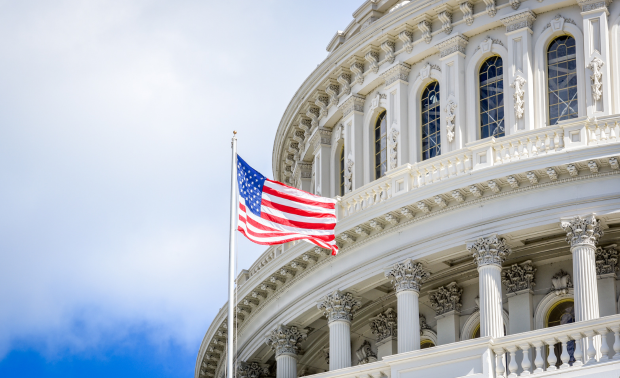ACS CAN campaign results in progress toward cancer research and screening funding amid difficult FY24 budget cycle.
On March 23, Congress passed and President Biden signed into law the Fiscal Year (FY) 24 appropriations bill, which included modest funding increases for cancer research and screening and prevention programs critical to reducing the cancer burden.
Through an intensive grassroots and legislative advocacy campaign, the American Cancer Society Cancer Action Network (ACS CAN) urged Congress to prioritize cancer research and prevention and early detection. Amid a tough budget cycle, this tremendous advocacy work resulted in the following being included in the spending bill:
- A $300 million increase in funding for the National Institutes of Health (NIH) base budget, including a $120 million increase in discretionary funding for the NCI.
- A $500,000 increase for the Centers for Disease Control and Prevention (CDC) cancer screening and prevention programs.
- Level funding for the Advanced Research Projects Agency for Health (ARPA-H) at $1.5 billion.
- At NIH, a first-time appropriation of $12.5 million in dedicated funding for the development of palliative care research and a new $6 million initiative for Improving Native American Cancer Outcomes.
- Within the Department of Defense (DoD), $110 million in funding for the Prostate Cancer Research Program.
Throughout its advocacy campaign, ACS CAN volunteers directly contacted members of Congress 124,526 times leading up to the vote in support of the funding bill. ACS CAN also engaged in the following campaign activities:
- ACS CAN volunteers sent 123,191 emails to lawmakers and made 590 in person visits to U.S. Senate and U.S. House offices. ACS CAN also ensured 6,207 phone calls were placed into congressional offices in support of the appropriations campaign.
- ACS CAN launched a national Fight Cancer: Make Time ad campaign in Washington, D.C., to highlight ACS CAN’ ask to increase funding for NIH, NCI, and CDC programs. Ads ran in several publications including the New York Times, Punchbowl, Politico and Axios. This resulted in social media driving nearly 32 million impressions and more than 92,000 clicks to ACS CAN’s website.
- ACS CAN volunteers tweeted to lawmakers 958 times, in addition to organic social content on ACS CAN’s National social media channels, which generated more than 860,000 impressions.
- ACS CAN-led coalition One Voice Against Cancer (OVAC) hosted several lobby days with more than 235 meetings with lawmakers, including with congressional leadership. OVAC also ran ads that garnered more than 1.2 million impressions and 6,000 clicks to OVAC content.
- ACS CAN drove 64 national and regional media hits and 65 letters to the editor to elevate the cancer voice.
“We appreciate Congress’ continued support in prioritizing vital funding for cancer research in the face of significant budget constraints and are extremely grateful for new funding initiatives at NIH to support palliative care and improve cancer outcomes for Native Americans,” said ACS CAN CEO Dr. Karen E. Knudsen. “Unfortunately, the fiscal constraints coupled with the end of mandatory funding for Cancer Moonshot places overall funding levels behind last year and well below necessary levels to continue pace in progress in the fight against cancer.
“We can’t afford to lose momentum,” Dr. Knudsen added. “We call on Congress to advance an overall funding agenda that allows for robust, sustained increases in funding for NIH, NCI and CDC to ensure the strong and meaningful fiscal growth necessary to truly accelerate tomorrow’s cures and lead us to a future where the cancer burden is significantly reduced for everyone.”
ACS CAN will continue to advocate for an increase in cancer research and prevention and early detection program funding for the FY25 appropriations bill. For more information on ACS CAN’s official statement, visit fightcancer.org.


